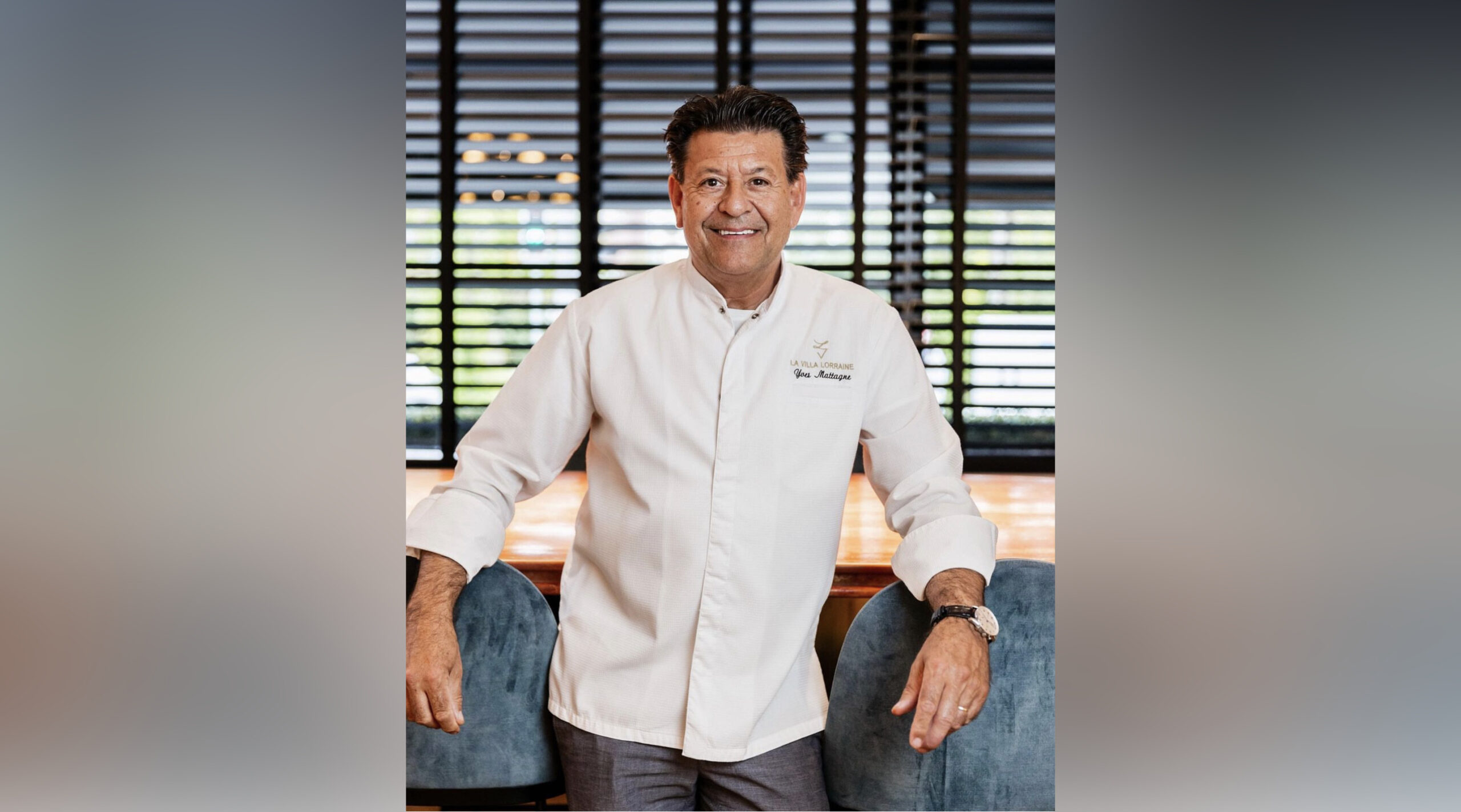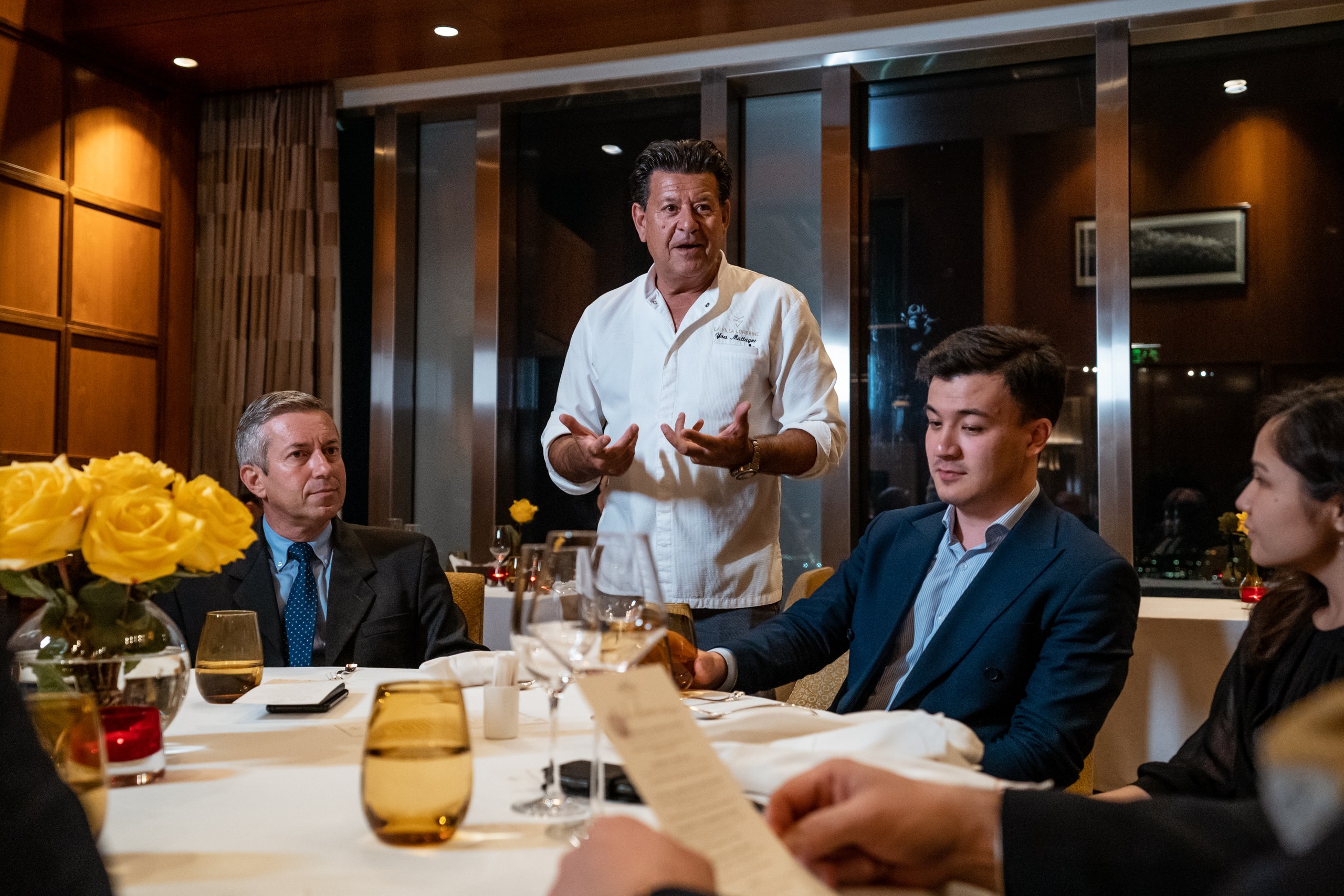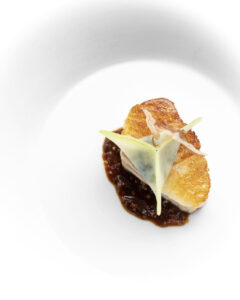ASTANA – From owning top seafood restaurants to hosting a television show, Yves Mattagne, a Belgian chef who has earned two Michelin stars, visited Astana and Almaty for the first time on May 19-23. In an exclusive interview with The Astana Times, he discussed his inspirations in cooking and revealed the secret to creating an indulging gastronomical experience.

Chef Yves Mattagne. Photo credit: Instagram @yvesmattagne.
All about the sea
Over the past 40 years, Belgium’s most celebrated fish chef has played a pivotal role in the popularization of local, seasonal cooking, specializing in exquisite seafood.
Mattagne describes his specialty as “all about the sea.” “Before, for 25 years [I cooked] only fish. I have more creativity with the sea. I have one specialty [which] is the press of lobster,” he said.
He is a passionate advocate of fresh food, responsibly sourced and wonderfully cooked. “No old fish. Nothing frozen. All fresh,” he said.
He had to adjust the recipe to prepare some of his signature dishes in Kazakhstan, as it was hard to source fresh seafood.
“I needed to work a little differently. I needed to slightly adjust the recipe to save the flavor. I had to keep a lot of marination, and a lot of salt and sugar in very cold water,” said Mattagne.
“I want to introduce Belgian cuisine to Kazakh people. I am very impressed and I did not expect that Almaty would be such a beautiful city,” he added.
Chef’s golden rules in creating an excellent meal
One piece of advice the chef gives from time to time is that it is important to concentrate on the quality of ingredients and the diligence of cooking. From fish and meat to spices, herbs and flour, the chef carefully sources the products that go into his dishes to create a mouthwatering taste.

Chef Mattagne during special dinner in Almaty. Photo credit: Artem RGB.
“First, you buy nice products. This is very important. The basis of my cooking is the product. Products that are no good [leads to] double cooking,” said Mattagne.
Aside from the quality of the ingredients, their seasonality and the way the food is served, particularly the choice of plates, also plays a role in creating a profound gastronomic experience.
“To choose the right plate is very important,” said Mattagne. “It makes you dive into the ambiance of your creation. The aesthetic on the plate is very important. Because all the color of the dish is coming out. It’s also like fashion – changing all the time,” he said.
Mattagne has been teaching culinary classes for chefs and the public for over 25 years. His granular approach to ingredients and methodology makes people rethink everything they thought they knew about cooking.
He is adamant that while learning techniques is necessary, it is more important to continue to probe with spices and tastes to figure out what works best and how far one can experiment with it.
“You need to play,” said Mattagne. “And when you play, sometimes it’s good, sometimes not so good. That’s what I want [them] to learn from my school.”
It is easy to add just another ingredient, but it is a sign of skill to make the ingredients harmonize, he suggested.
“Now when you’re cooking, it is easy, you just take a book and you cook [according to] a recipe. But I want people coming to my class thinking about the flavor and feeling the flavor. Combining spices with other spices and discovering,” he added.
Traveling as a cooking class
Traveling is one of the formative experiences in his cooking career. “My cooking class for me is traveling,” said Mattagne.

Mattagne often fuses the ingredients of foreign traditional cooking with his own vision. Skrei ‘Shio Koji’: Hakushu whiskey, kohlrabi, wakame, bergamot, katsuobushi. Photo credit: Instagram @yvesmattagne.
“Every country I go to, I’m learning something. But I don’t go to the concept restaurant. If I go to a restaurant, it will not be the cuisine of the country. I want to know the real cooking of the country,” he said.
Traditional dishes can reveal the rich food history of the locals better than cultural attributes.
“First thing I do when I’m going to another country is to experience the real cuisine of the country. For me, that’s traditional cooking. That’s where all the flavor is,” he said.
Mattagne always fuses the ingredients of authentic traditional cooking with his own vision, bringing together different dishes and ingredients to create something new.
“When I’m getting this kind of [traditional] flavor, I want to mix it with my own feeling of Belgian or French cooking. For example, when I use a Japanese cooking item, I take my feeling and combine it with the Japanese item and put it in my recipe,” he said.
The advantages of his travel experience can now be found in Mattagne’s menu. He said he was eager to try out traditional Kazakh cuisine as well.
Treats from the streets
Mattagne continues to enhance his own experimentation with food and recently, he has become passionate about street food.
“What I like today is the concept of street food. I like this kind of way you eat when you share food,” he said.
Mattagne knows that street food is all about making it fun. “I want to have fun when I’m eating,” he added.
Street food allows one to enjoy the outdoors, witness the display of carefully chopped ingredients and experience eating by hand, adding a touch of hearty satisfaction to every bite.
By sharing an eating experience, the boundaries between people become blurred, creating a communal atmosphere, according to the chef. He highly values the connection with people that eating street food creates. “All people eat, and everybody eats the same way,” said Mattagne.

